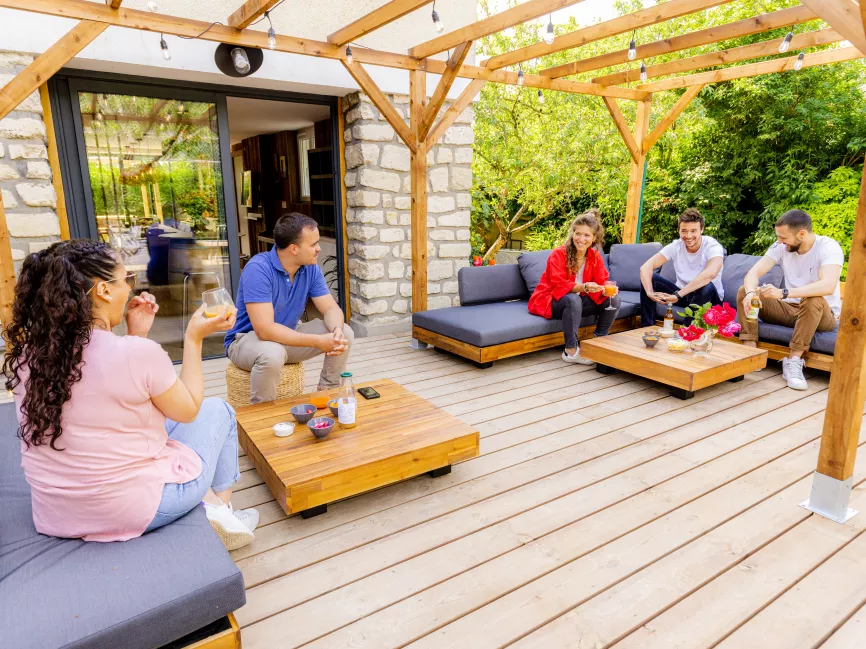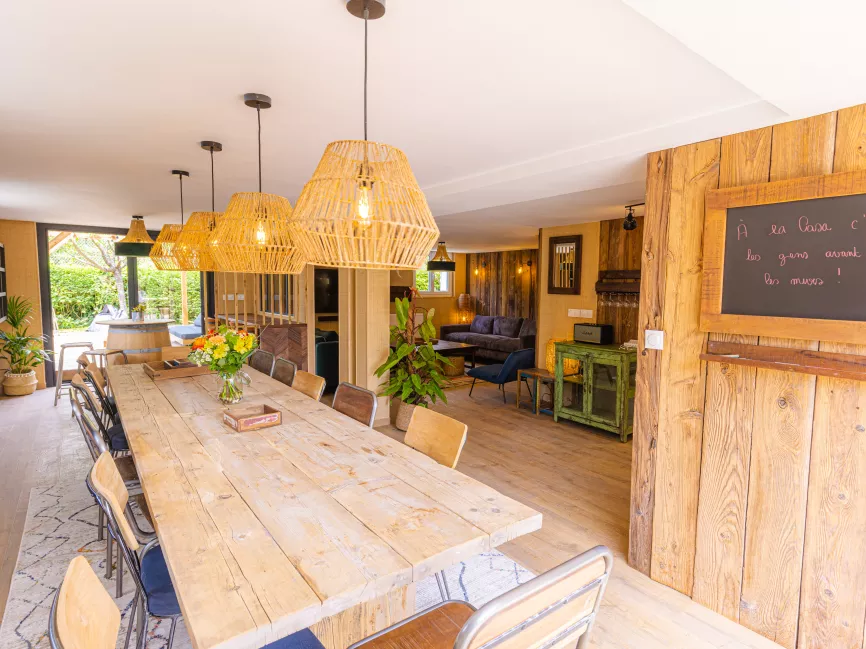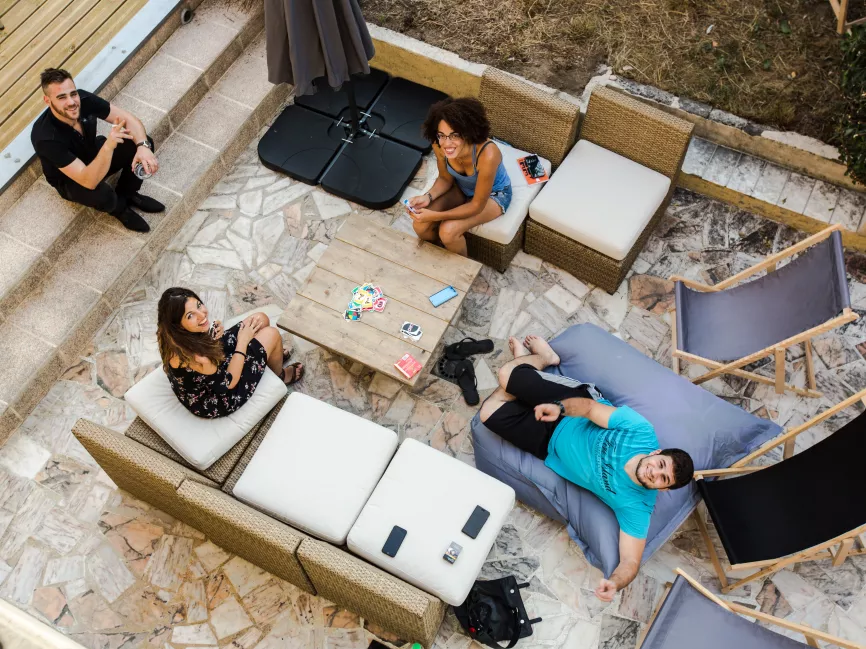Community living rules: living well in flatsharing

It's important to know the rules of community living to ensure a friendly and harmonious cohabitation.
The different rules of communal living to adopt
When several individuals share their daily lives and live together, it is essential to establish community living rules. Learning to live together is a skill, and having common guidelines often leads to a harmonious cohabitation in shared accommodation.
The importance of establishing rules for cohabitation
Moving into a rental property as a group, whether it's co-living, living with family, residing in a student dormitory, or in a building with neighbors, presupposes accepting the presence of others in one's daily environment. For this community life to be healthy, it is essential to establish rules through an internal regulation that sets clear guidelines so that everyone shares the same vision of living together harmoniously. At La Casa, all members of the houses have signed a cohabitation agreement. The agreement defines the rules of living together as it was conceived at La Casa. Thus, a candidate who, from the outset, does not share this necessity to create rules and follow them would not be able to join a Casa. With several dozen Casas open and a staff trained in community management, we support our housemates on a daily basis to help them live well in shared housing and enjoy everything La Casa has to offer.
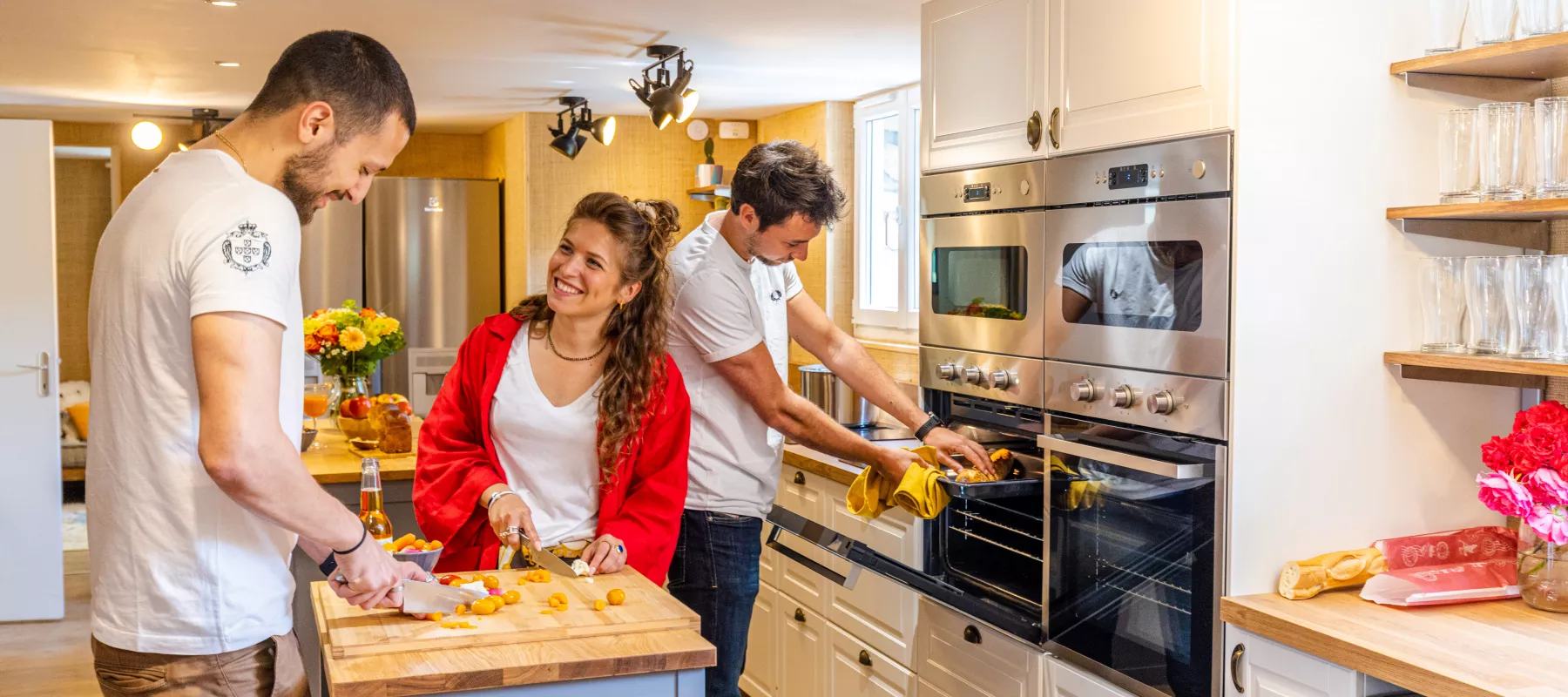
The different rules of living to adopt in a community
It's not innate! Because not everyone has the same sensitivity or expectations in group living, it is necessary to take the time to discuss together what can cause nuisances or discomfort to one of the members of the flatshare. Here are some basic guidelines: Respecting each other's privacy in community living "The freedom of some ends where the freedom of others begins": you probably know this proverb which applies even more to flat-sharing where we live together.
Respecting each other's privacy on a daily basis is very important. From one member of the community to another, characters can be different. For example: one flatmate likes to be with others all the time, another one likes to have some quiet time alone. To live well in a flatshare, it is important to have accommodation suitable for flat-sharing. Indeed, it is common in apartments where you move in with flatmates to have only one bathroom for three or four people, or to share a kitchen that is too small.
At La Casa, we believe that residences should be designed for communal living. Therefore, our Casas are spaces designed for the community to live with enough space and to limit friction. Each flatmate has their own bedroom and bathroom, and the common areas are fully equipped for everyone to enjoy. The result? This house configuration helps to limit situations where one flatmate might cause inconvenience to another. And as mentioned earlier, every La Casa tenant has signed the flatsharing agreement.
Thus, all flatmates share a common vision of the community from the outset, which fosters a shared way of living together that allows everyone to enjoy La Casa. However, like in any living situation, tensions may arise. Here are our tips for anticipating and managing them, while avoiding unpleasant comments. When living in a rented accommodation, or even when owning one's own home, it's also important to consider the neighborhood.
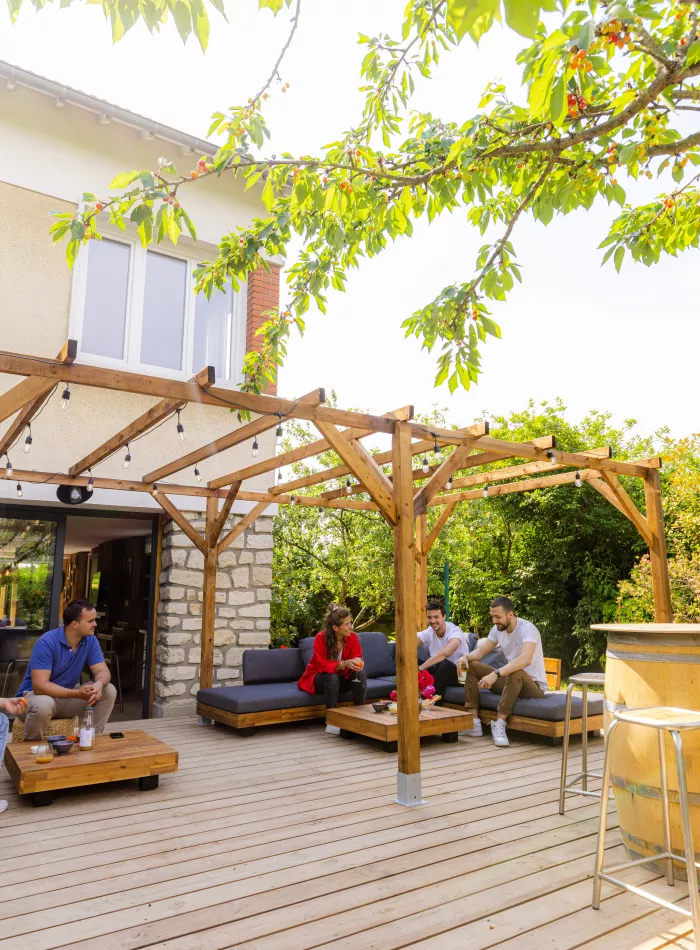
The law regulates the noise disturbances that neighbors may cause to each other: construction work in the building, noise from pets, noise caused by children, or by walking pets... If you experience discomfort, start by approaching your noisy neighbor to have a discussion with them and remind them of the condominium rules if they exist. Indeed, within a building, neighbors may be part of a condominium association and have agreed on regulations or a neighborhood charter to ensure that the building remains a pleasant living environment for everyone.
This charter aims to reach an agreement among all members of the building: families, young people, older individuals, pet owners, both owners and tenants.
Furthermore, after a period of confinement where classes and work were conducted from home, and with remote work still permitted by companies, respecting the tranquility of the neighborhood is at the forefront of concerns for condominiums, both during the day and in the evening.
In the context of a new lease signed by members of the building, it may be beneficial to provide them with a property guide. Anticipating the issue through a guide will likely lead to better management of conflicts with neighbors, such as young partygoers or disturbances during remote work, yielding better outcomes.
The common rules of a property apply to what happens inside the building, as well as outside. For instance, if the property has a courtyard, it is beneficial to establish rules (both during the day and in the evening) related to children's play in it, permissions for parking bicycles or two-wheelers, and maintenance responsibilities (are these services included in the charges?).
These rules can also consider what happens around the building: is it a parking area? What happens in case of roadworks? Additionally, a company conducting roadworks must notify the local municipality, which keeps track of ongoing road projects. It also ensures compliance with strict safety measures.
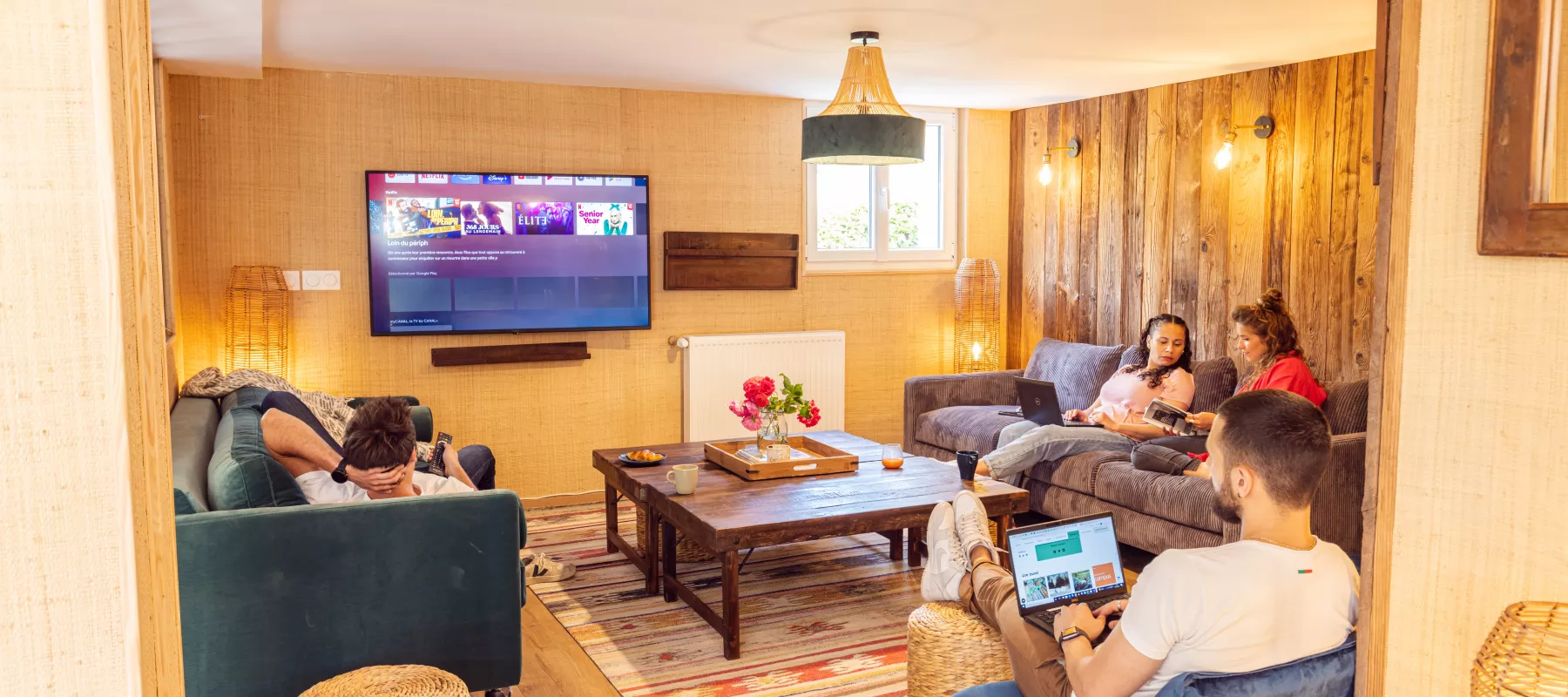
In case of disputes within the neighborhood or within the condominium, it is possible to refer to these regulations. If this is not sufficient, it is possible to write to the local municipality within the framework provided by law. It is also possible to involve the police or gendarmerie in case of repeated disturbances or threats to residents' safety. As mentioned earlier, living together is not innate, and it is essential to take the time to discuss.
When a Casa opens, the staff comes to meet the roommates in their new home to share a set of best practices to launch their community. It's an organizational plan that puts roommates at the center of everything to ensure good human connections among the new roommates. Among these best practices, Casa roommates are encouraged to hold regular General Assemblies together.
During these general assemblies, everyone can express their needs, desires, or areas of tension, which are then discussed by all before reaching decisions. Through the cohabitation agreement, roommates commit to holding regular general assemblies and adhere to an established organization in case of issues in the house. To live well together, it is important to agree on common principles, acknowledge the need to respect each other's peace and quiet, and avoid creating nuisances that could inconvenience other roommates (such as teleworking or guests).
It is also essential to have an organization in case of problems and regular moments of exchange to discuss the rules of living, write them down, and remind each other to respect them. For example, if a roommate enjoys DIY and needs to use noisy equipment, it is good to establish guidelines together in advance, such as designated time slots when they can use them. This helps anticipate future frustrations.
Sharing tasks is also important for harmonious cohabitation. Roommates will share a common living space that needs daily care. Therefore, they should divide household chores for the common areas among themselves. Cleaning, maintenance, managing trash, meal preparation, and cleaning countertops are just a few examples of organizational tasks that need to be addressed. Once again, it is highly recommended for those deciding to live in a shared accommodation to take the time to meet and establish internal rules. This will help create strong human connections afterward! While it may not completely eliminate conflicts, it will certainly help reduce nuisances and foster a positive living environment.
At La Casa, the cohabitation pact sets the organization of community life and task management per person through designated roles. Each individual is responsible for a specific task (e.g., cleaning) and ensures its proper execution. This also allows roommates to fully benefit from all the services available at La Casa. In conclusion, if you're interested in joining a Casa, we're waiting for you!



